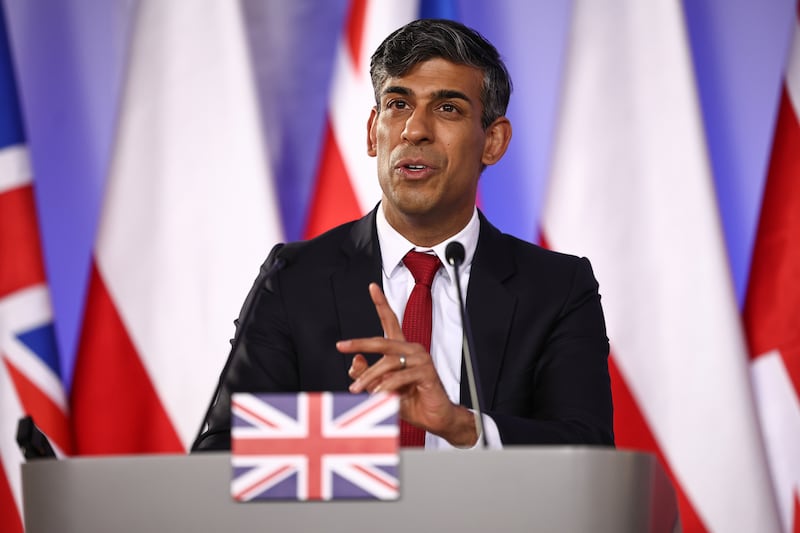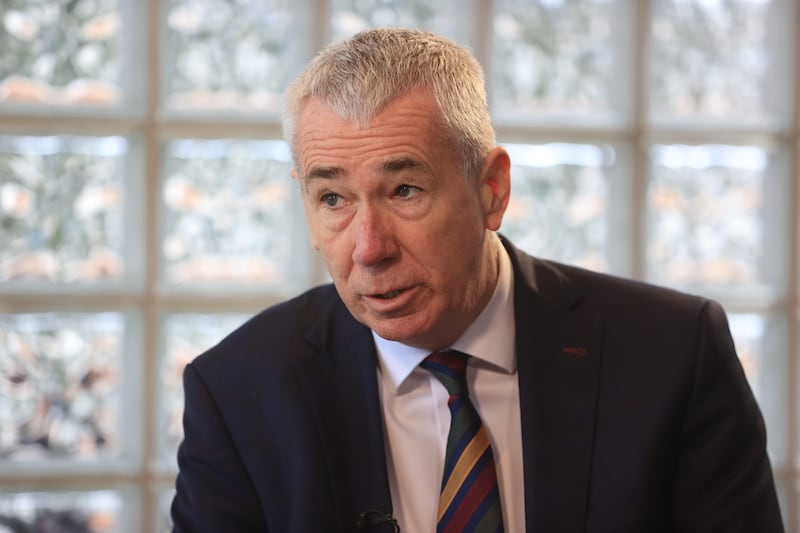Last week’s investment conference creates the illusion of a caring Westminster government. In practice, it is a smoke screen for the structural violence that is being waged against Northern Ireland's poorest as public services are dismantled.
Opening the conference, Chris Heaton-Harris told delegates that Northern Ireland has “enormous economic potential and is full of the talent and expertise required by the sectors of the future to succeed and to thrive".
A few days earlier, it was announced that access to Discretionary Housing Payments would be substantially reduced. DHPs are "top up" housing payments that help private rental sector tenants address the shortfall between their rent and benefit payments. Over 3,000 tenants have lost their DHPs with little notice. The consequences for many will be catastrophic.
The budget laid by the Secretary of State in April 2023 was described by one permanent secretary as ‘sub-optimal’. It put him and his colleagues in the unenviable position of making vast cuts to public services – a privilege preserved for ministers in functioning democracies.
Read more:
Extinction at Lough Neagh reflects a crisis of values and ideas
And so followed a raft of cuts, one following the next, many without consultation, while elected representatives stand by powerless to do anything and an unelected Secretary of State escapes accountability.
The Department of Education announced over 10 separate cuts to provision directed at disadvantaged students – including the loss of free school meal grants for 96,000 children during school holidays. Low-income families losing £27 a fortnight as food inflation doggedly persists.
The budget shortfall in education is estimated to be in the region of £382m. Sara Long, chief executive of the Education Authority, told the NI Affairs Committee that it is the equivalent of 6,600 whole-time equivalent redundancies.
The same families impacted by the salami-slicing exercise in education will be impacted by the £111m shortfall in the Department for Communities, who administer social security benefits and are responsible for social housing.
Northern Ireland's housing crisis bears similarities to other crises around the world. The Assembly hasn't built enough social housing. Landlords have switched to short term lets and turned to Airbnb to extract capital. Rents are increasing as landlords seek to address rising interest rates. Some, taking advantage of the housing shortage, are raising rents out of pure greed. Northern Ireland's rents have risen by 10 per cent in the last 12 months, surpassing the rate in much of the rest of the UK.
Without DHPs, thousands will be unable to meet their rental payments. They will be evicted from their homes if they can't meet their rental payments. They have few options upon finding themselves in housing stress. Temporary accommodation stock is low. Those with homelessness status stood at 12,431 in 2013 and in August 2023 it stood at 26,745 – a stark picture of the current situation which is exacerbated by a shameful governance vacuum.
The cut to DHPs is just one of many executed in the last six months. The budget for Discretionary Support Payments (crisis grants and loans) has been sliced in half. The Department for Communities which administers the scheme forecast a budget requirement of £40m in the context of the current crisis. It now stands at £20m with the department forced to further restrict its eligibility by limiting the grants to ‘basic needs’.
The Secretary of State insists that the DUP must get into government to fix these problems. The party's culpability in the current crisis is undeniable, but they are a useful scapegoat.
The Secretary of State’s attitude reflects a well-known trend. Britain has always sat on its hands, inflicted misery on Northern Ireland and pretended it has no responsibility for the consequences of its own actions.
The magnitude of the cuts will have an untold impact on the progress of the next generation. Long-worn issues, such as higher suicide rates, poor mental health, and chronic economic inactivity, will only worsen by the actions of a disinterested Secretary of State who does not rely on the votes of a poorer NI public.
The cuts to deprived communities in Northern Ireland need to be reversed urgently. And we need to see permanent change to the structure of the Northern Ireland institutions. Peace, prosperity and social progress are impossible goals when active governance and law making operates only 60 per cent of the time. The peace process has benefited Northern Ireland’s middle classes while the vast majority have been left behind.
If the Secretary of State seeks to sell NI by putting money in the pockets of wealthy shareholders while making the poor worse off, he is making a huge mistake. This isn't selling Northern Ireland; it is extraction on a global scale.
:: Sarah Creighton is a housing adviser and political commentator. Dr Ciara Fitzpatrick is an academic and anti-poverty activist.






